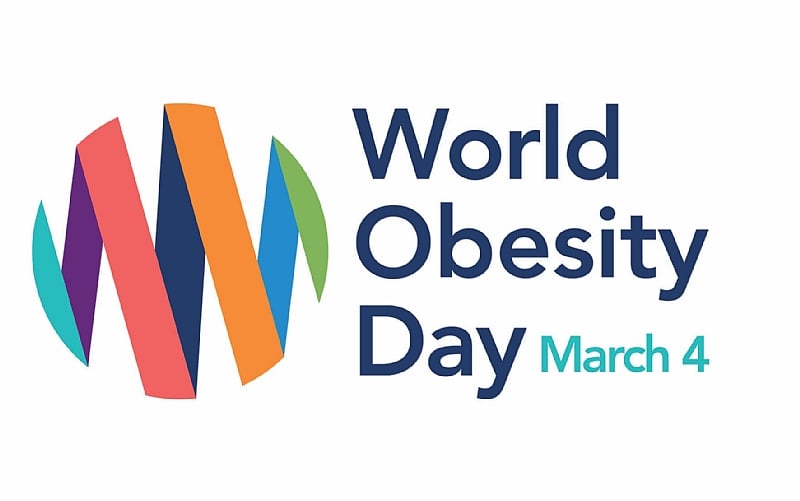In Ghana, as in many parts of the world, the discourse surrounding body weight is fraught with judgment, stereotypes, and deeply entrenched cultural narratives. On this World Obesity Day, it is imperative to examine the role that language plays in perpetuating obesity stigma and to call for an end to harmful behaviors. Local colloquialisms such as Obolo, Cargo, Oluftubom, and Okese3 are not mere epithets—they are reflections of societal attitudes that demean individuals struggling with obesity and contribute to an environment of exclusion and discrimination.
The Linguistic Dynamics of Obesity Stigma
Language is a powerful tool that shapes perceptions and reinforces social norms. In Ghana, terms like Obolo and Cargo reduce individuals to caricatures, implicitly linking body size with negative attributes such as laziness, excess, or lack of self-control. These labels oversimplify a complex health issue and serve as shorthand for a moral judgment that has little to do with the multifactorial etiology of obesity.
Oluftubom and Okese3 carry a similar weight in their capacity to dehumanize, suggesting that individuals who are overweight are somehow less worthy or capable than their slimmer counterparts. Such terms reinforce a binary view of bodies—where a “normal” body is idealized and any deviation is seen as a defect. This not only undermines the dignity of those who are overweight but also perpetuates a culture of blame, where obesity is viewed solely as a consequence of personal failings rather than a complex interplay of genetics, environment, socioeconomic status, and lifestyle factors.
Public Health Implications of Stigmatizing Language
The consequences of obesity stigma extend far beyond hurt feelings or damaged reputations; they have tangible impacts on public health. Research consistently shows that stigmatizing language and discrimination contribute to stress, anxiety, and depression, which can, in turn, exacerbate physical health issues. When individuals internalize these negative messages, they may engage in unhealthy behaviors—ranging from disordered eating patterns to avoiding medical care—that further compound their health risks.
Moreover, stigma can deter individuals from seeking help or engaging with public health initiatives. A person branded as Cargo or Okese3 may feel alienated by health campaigns that are perceived as judgmental, thereby missing out on crucial support, guidance, and interventions. In a society where obesity is rising due to rapid urbanization, changing diets, and sedentary lifestyles, stigmatizing language undermines efforts to create supportive environments for healthier living. It transforms what should be a collaborative public health challenge into a punitive measure against the very individuals who most need compassion and assistance.
A Path Forward: Promoting Respectful Discourse and Inclusive Health Practices
It is time to confront the role of language in shaping public attitudes and health outcomes. Public health initiatives must incorporate a dual approach: one that addresses the systemic drivers of obesity and another that actively works to dismantle the stigma that hinders effective intervention. First, educational programs must clarify that obesity is a multifaceted condition influenced by a combination of genetic predispositions, environmental factors, and socioeconomic conditions—not simply a matter of individual willpower.
Simultaneously, community leaders, educators, and policymakers need to lead by example in denouncing derogatory terms and replacing them with language that respects human dignity. Media campaigns, school curricula, and public discussions should emphasize that words matter—they can either empower or isolate. The call for respectful discourse should be clear: labels like Obolo, Cargo, Oluftubom, and Okese3 have no place in a society committed to fairness and health equity.
Interventions should also include training for healthcare professionals to ensure that clinical settings are free from bias. This means recognizing the implicit biases that may affect diagnosis, treatment, and patient interactions, and actively working to create an environment where patients feel supported rather than shamed. Reframing obesity from a moral failing to a public health challenge can help Ghana to foster a more inclusive and effective approach to managing this growing epidemic.
Conclusion
Today, on World Obesity Day, we must confront not only the physical and socioeconomic challenges posed by obesity but also the linguistic and cultural practices that exacerbate its impact. The derogatory labels that have become part of everyday discourse in Ghana contribute to a cycle of stigma and discrimination—one that undermines both individual well-being and public health initiatives. It is time for a collective reassessment of how we speak about obesity. We must reject the damaging nomenclature and adopt language that supports and empowers. Only then can we hope to create a society where every individual, regardless of body size, is treated with the dignity and respect they deserve.
The call to action is clear: let us end the use of harmful labels and work together to foster a culture that values health, inclusivity, and respect over outdated stereotypes and prejudice.


